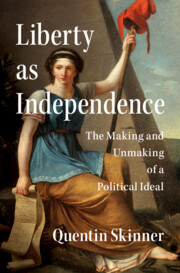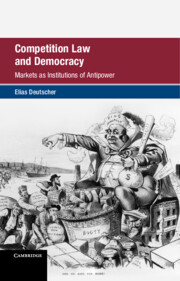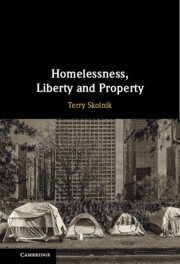Refine search
Actions for selected content:
55 results
6 - The Imperative of Professional Dementia Care
-
- Book:
- Relating to People Living with Dementia as Equals
- Published online:
- 12 December 2025
- Print publication:
- 22 January 2026, pp 111-132
-
- Chapter
- Export citation
5 - The Indirect-First Approach
-
- Book:
- Relating to People Living with Dementia as Equals
- Published online:
- 12 December 2025
- Print publication:
- 22 January 2026, pp 89-110
-
- Chapter
- Export citation
8 - Dementia, Equality, and the Law of the United Kingdom
-
- Book:
- Relating to People Living with Dementia as Equals
- Published online:
- 12 December 2025
- Print publication:
- 22 January 2026, pp 152-167
-
- Chapter
- Export citation
7 - Carebots
- from Part II - Living the Digital Life
-
-
- Book:
- Being Human in the Digital World
- Published online:
- 11 November 2025
- Print publication:
- 20 November 2025, pp 100-115
-
- Chapter
-
- You have access
- Open access
- HTML
- Export citation
2 - Explaining the Relationship between Culture and Politics
-
- Book:
- Pious Politics
- Published online:
- 21 October 2025
- Print publication:
- 30 October 2025, pp 32-48
-
- Chapter
- Export citation
Chapter 11 - Humility
- from Part V - A Virtue of Indifference
-
- Book:
- Attention to Virtues
- Published online:
- 25 July 2025
- Print publication:
- 14 August 2025, pp 261-296
-
- Chapter
- Export citation
Divine domination
-
- Journal:
- Religious Studies , First View
- Published online by Cambridge University Press:
- 04 August 2025, pp. 1-19
-
- Article
-
- You have access
- Open access
- HTML
- Export citation

Kant on Social Suffering
-
- Published online:
- 28 July 2025
- Print publication:
- 21 August 2025
-
- Element
- Export citation
5 - Liberty
- from Part I - Values
-
-
- Book:
- The Cambridge Handbook of Constitutional Theory
- Published online:
- 27 March 2025
- Print publication:
- 24 April 2025, pp 71-87
-
- Chapter
- Export citation
Who Is the Caregiver in Kant’s Theory of Labour? Examining Social Domination in Classical German Philosophy
-
- Journal:
- Kantian Review , First View
- Published online by Cambridge University Press:
- 22 April 2025, pp. 1-18
-
- Article
-
- You have access
- Open access
- HTML
- Export citation
12 - Nepotism and Roman Micro-Policy
- from Part II - The Roman Curia
-
-
- Book:
- The Cambridge History of the Papacy
- Published online:
- 28 February 2025
- Print publication:
- 20 March 2025, pp 316-346
-
- Chapter
- Export citation

Liberty as Independence
- The Making and Unmaking of a Political Ideal
-
- Published online:
- 23 January 2025
- Print publication:
- 06 February 2025
Chapter 2 - Lessons from Slavery
- from Part I - Methodology and a Shift in Perspective
-
- Book:
- Reconceiving Freedom from the Shadows of Slavery
- Published online:
- 02 January 2025
- Print publication:
- 09 January 2025, pp 37-62
-
- Chapter
- Export citation
10 - Empire
- from Part III - Openness and Domination
-
- Book:
- Remaking the World
- Published online:
- 29 November 2024
- Print publication:
- 19 December 2024, pp 202-217
-
- Chapter
- Export citation
The International Order of White Sovereignty and the Prospect of Abolition
-
- Journal:
- Ethics & International Affairs / Volume 38 / Issue 2 / Summer 2024
- Published online by Cambridge University Press:
- 22 November 2024, pp. 189-199
-
- Article
-
- You have access
- Open access
- HTML
- Export citation

Competition Law and Democracy
- Markets as Institutions of Antipower
-
- Published online:
- 21 November 2024
- Print publication:
- 28 November 2024
Introduction - Homelessness and the Regulation of Public Property
-
- Book:
- Homelessness, Liberty and Property
- Published online:
- 14 November 2024
- Print publication:
- 21 November 2024, pp 1-22
-
- Chapter
- Export citation

Homelessness, Liberty and Property
-
- Published online:
- 14 November 2024
- Print publication:
- 21 November 2024
3 - Two Complaints about Undemocratic Exclusion
- from Part I - Subjection, Interaction, Power, and Domination
-
-
- Book:
- Empowering Affected Interests
- Published online:
- 14 November 2024
- Print publication:
- 14 November 2024, pp 56-71
-
- Chapter
-
- You have access
- Open access
- HTML
- Export citation
GRAPHS WITH SEMITOTAL DOMINATION NUMBER HALF THEIR ORDER
- Part of
-
- Journal:
- Bulletin of the Australian Mathematical Society / Volume 111 / Issue 2 / April 2025
- Published online by Cambridge University Press:
- 13 September 2024, pp. 197-204
- Print publication:
- April 2025
-
- Article
- Export citation

